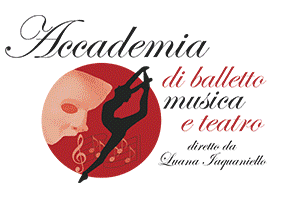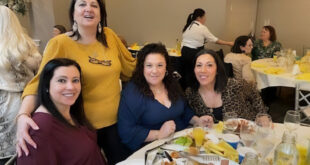Fish schoolChef
Pippo Lamberti is the teacher.
Cuttlefish, squid and octopus are the intriguing subjects – and the start of a sensational meal.By Dianna Marder
Inquirer Staff Writer
There’s really only one way to skin a cuttlefish: very carefully.
You want to remove the spine and the innards without spilling the ink sac. But oops! Pippo Lamberti, the exciting young chef at Positano Coast, who has gathered us together on this August afternoon so that we may learn to cook with cephalopods such as cuttlefish, squid and octopus, accidentally breaks the sac.
Too bad, but not a disaster. Ink from cuttlefish (and squid) is often used to tint risotto or pasta, but that’s not what Lamberti, 25, planned for today. So he casually cleans up, remarking that this “is why some people buy their fish already cleaned.”
There you have it, the single most important tip you can pick up in a cooking class: Mistakes are possible, if not inevitable. Pick up the pieces and go on.
What better way to learn than by demonstration? That’s why I and almost a dozen other eager eaters have signed up (and paid $35) for this cephalopod cooking class at Positano Coast in Old City.

The chef, whose family owns this restaurant and several others in the region (Caffe Aldo Lamberti in Cherry Hill, etc.), will guide us on an excursion to his favorite fish markets in Chinatown and then prepare a feast: Seppia Pappardelle, grilled baby octopus, and pan-seared calamari.
This is the third such class, and from now on, they’ll be on the last Saturday afternoon of every month.
Space in the classes fills quickly – in part because while seafood tastes great, cooking it seems tricky. But another reason is the chef himself: He’s knowledgeable and energetic, with an easy, engaging charm.
Watching him cook is like watching Astaire dance – he makes you believe you can just get up from your seat and do it with equal panache.
And the meal is memorable.
Conch, cod and croaker. Skate, Spanish mackerel and striped bass. Gray sole and strawberry grouper. Pippo Lamberti knows them all.
Born in the coastal village of Monte di Procida, Italy, just outside Naples, Lamberti came to this country when he was 5. And though the Lambertis live in Cherry Hill, they return to Monte di Procida often.

Pippo’s paternal and maternal grandparents were born and raised there. It’s where he learned to eat and subsequently cook. And it’s where he still goes spearfishing.
But if his father, Aldo, hadn’t been a successful restaurateur, it’s doubtful Pippo would be in the business.
“When I was 14 or 15, I got in trouble at school one day,” Pippo says. “My dad said, ‘You’re not going out tonight. You’re going to work.’ ”
“I very clearly remember this. My dad said to one of the cooks, ‘Take him on the grill with you; make him feel a little bit of the heat.’
“I’d helped out in the kitchen before, but back then I really didn’t care about the restaurants or about cooking.”
But that night was different. This time, it all clicked: the food, the pressure, and yes, the heat.
“I found this was my calling. So, everything happened the way it should have, I guess.”
Here we are then, crowded into Kings Seafood market on North 10th Street. Lamberti buys most of his fish in Chinatown, at this shop and at Great Wall Seafood a few doors down.
He tells us how to check for freshness:
Lift the gill and make sure the underside is bright red. The eyes should be clear and almost bugging out, not caving in. The skin should be moist to the touch. And it should smell clean like the sea. It’s not supposed to smell “like fish.”
Frozen is not verboten.
Octopus and calamari, for example, come both fresh and frozen. But Lamberti hasn’t found the right supplier for fresh cuttlefish, so he buys that frozen.
We are, as I said, a gathering of eager eaters. Among us we have Jack Cavanaugh, general manager of the Swarthmore Co-op; Bill Fleisher, a retired FBI man, and his wife, Michelle; Joe LaPenta, South Philadelphia born and bred, for whom cooking is an avocation; and Werner and Eunice Colmon, who drove in from East Brunswick, N.J., where he said most of the restaurants are chains. He cooks, she’s the critic.

“We’re always in pursuit of a good meal,” he tells us.
By the time we leave Chinatown and head for the restaurant, both Werner Colmon and Bill Fleisher have gleaned tips from Lamberti that, they say, make the day worthwhile.
Werner now knows where to poke a razor clam to test for freshness. And Bill learned that fried calamari gets rubbery if you dredge it in flour while it’s still frozen (which some restaurants do for efficiency, Lamberti explains).
Rosita Lamberti, Pippo’s sister, meets us at the restaurant, where she’s general manager.
The setting is soothing, like an Amalfi afternoon. The rooms are done in cobalt blue and white, with floor tiles imported from Italy. Dining rooms are divided by billowy sheets of white cloth that suggest a warm breeze and a view of the sea (even though we’re really overlooking the Ritz Five theater).
We take seats at a rectangular table angled so all the seats are in sight of the workstation that Lamberti will use. He starts in on the aforementioned cuttlefish while we become acquainted. Like so many others before us, when we talk about food, we talk about family.
“Food is the epicenter of the family,” LaPenta says. He wishes he’d spent more time in the kitchen when he was young.
“But my mother didn’t encourage it. She was a good cook, but I don’t think she really enjoyed it,” he says. “When did she have time to enjoy it? She did all the housework herself and at night she sewed wedding dresses. That breed of woman is gone.”
Werner Colmon nods knowingly. Family dinners left him well-fed but still ignorant of “how food happened.” Everything he knows he learned from the Food Network.
“And now you clean the head,” Lamberti says, bringing our attention back to the cuttlefish at hand. “You want to take off the beak and the eyes.”
Blanching the body in salted water for one minute, he says, makes it easier to peel off the skin. Lamberti plans to cut the cuttlefish in strips that resemble pasta, so, after blanching, he would normally refrigerate it to make slicing easier.
But we have to be out of here by 2 p.m., so while he has been demonstrating, his staff has been doing its magic in the kitchen.
Indeed, here come artfully arranged platters of Seppia Pappardelle (cuttlefish cut to resemble pasta strips) for us to eat.
“Don’t be scared,” Lamberti says, scanning our reactions. But none of us is shy about digging in. The aroma is luscious. Soon we are grinning in delight.
The chef starts in on the baby octopus. It is quickly parboiled. Then Lamberti chops it in pieces that he seasons, grills lightly, and takes off the grill to be seasoned again before it’s cooked on the other side.
This dish tastes succulent.
“I hate to say this, because it’s so cliche,” Werner announces. “But this is out of this world. It’s so full of flavor.”
On to the calamari.
Lamberti will dust it with flour and then sear it in a very hot pan. Try this at home: Season the squid, not the flour, then dredge the squid in flour, tap off the excess, and drop in the pan. Calamari has a tendency to curl, so apply pressure, either with a spatula or a heavy pot, to keep it flat in the pan for even cooking.
Lamberti plates the calamari with a touch of sundried-tomato pesto and a smattering of sauteed asparagus.
There is quiet now while we eat. This is intense.
“I’m done,” Werner Colmon says, putting his napkin aside.
“And that taste is just sensational. I don’t want anything else to touch this palate for the rest of the day.”
Alas, we are then hog-tied and forced to eat dessert – huge portions of heavenly tiramisu served with a blueberry coulis and a satisfied smile from the chef.
But it was worth it.
….
fonte: http://www.philly.com
Nota: se vuoi tradurre questo articolo in italiano, contattami

 Monte di Procida Il sito ufficiale dei montesi
Monte di Procida Il sito ufficiale dei montesi
















